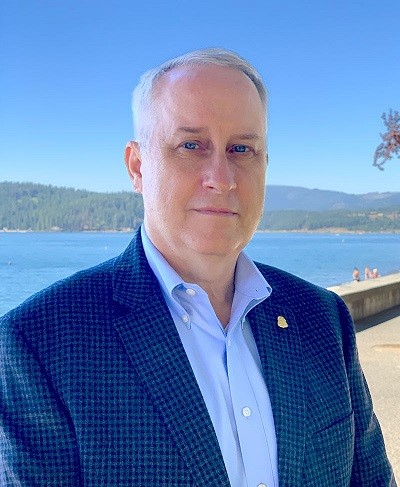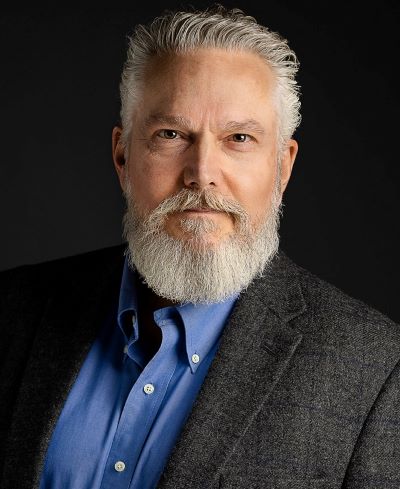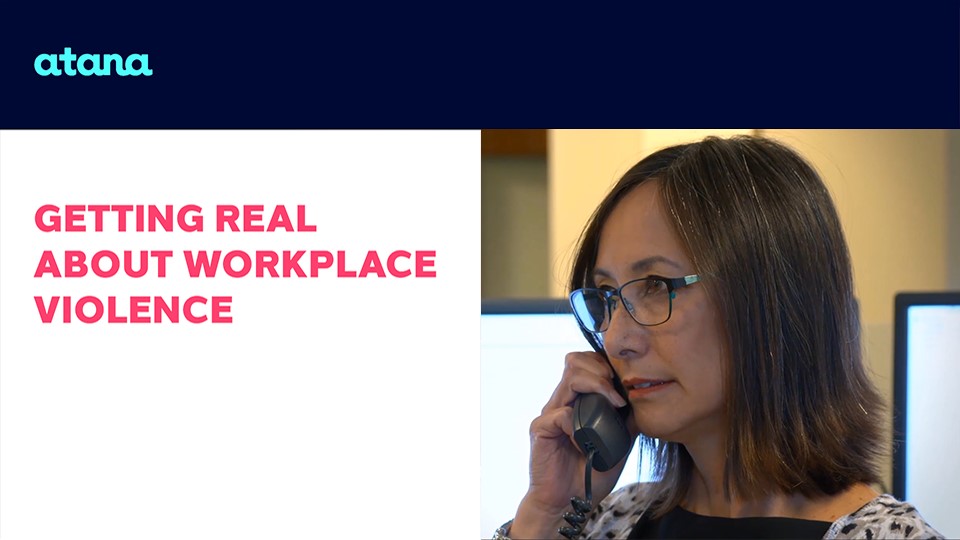
We've hired a workplace violence expert. What could possibly go wrong?
In the wake of California's groundbreaking Senate Bill 553, many organizations are turning to external 'experts' to help navigate the complexities of implementing effective Workplace Violence (WPV) prevention programs. It seems a straightforward solution: hire a specialist, align your practices with the new law, and voilà – workplace safety is assured. Or is it? In this post, we peel back the layers of this critical decision-making process. While enlisting professional help can be an excellent strategy, it has some potential pitfalls. This blogpost will explore the nuances of selecting the right contractor and how to ensure that the expertise you pay for genuinely fortifies your approach to workplace violence prevention. As we’ve learned, not all that glitters is gold in the realm of WPV expertise – let’s uncover how to discern true gold from mere glitter.
Misplaced Trust
In May 2022, a routine workday at an Omaha, Nebraska charitable organization turned into chaos when a man, armed and masked, simulated a shooting spree with blanks and actors posing as bloodied victims. This shockingly realistic drill, orchestrated by John Channels, a 27-year-old posing as a security expert, plunged the staff into terror. Unbeknownst to the organization, Channels, recommended by their security director, had fabricated his credentials and experience, neglecting even to notify local police of the exercise. Post-drill, Channels insensitively promoted his gun safety training services to the traumatized employees. He was later arrested on multiple charges, including terroristic threats, with his history revealing prior serious criminal allegations.
This harrowing incident was not unique. In 2021, a Florida hospital experienced a similar scare during a flawed active shooter drill, leading to a lawsuit by the staff. In 2019, Indiana teachers endured a traumatic training session where they were shot with plastic pellets, leaving physical and emotional scars. These incidents highlight the critical importance of thorough vetting and responsible conduct not only in execution of security training exercises, but, and perhaps more importantly, the vetting and selection of properly trained and experienced security consultants.
The importance of due diligence
Granted, the examples above are extreme, but they serve as a stark warning about the perils of failing to do your due diligence when hiring a consultant. Reputable security consultants can bring specialized knowledge, experience, and skills to help organizations tackle specific challenges or achieve long-range goals. This can be particularly useful for smaller organizations or those that don’t have the budget to hire full-time security professionals. Sometimes, an organization needs “outside eyes” on a specific problem or project. External consultants can often provide an objective perspective on an organization's security posture and can conduct independent assessments to identify vulnerabilities or gaps that internal teams may overlook. However, selecting the right consultant can be daunting, especially in the security sector.
Here are some key considerations to keep in mind when choosing an external security consultant.
- Clarify Your Requirements: Before seeking a consultant, clearly define your organization's needs and objectives. Identify the challenges you face, the desired outcomes, and the specific expertise required. Understand the problems you aim to resolve and set clear expectations for deliverables. A precise grasp of your goals is key to finding the right consultant, one who can further help refine your objectives into S.M.A.R.T. (Specific, Measurable, Achievable, Relevant, Time-constrained) goals.
- Seek Relevant Experience and Expertise: Choose a consultant with proven experience in your industry or one adept at tackling challenges similar to yours. Credentials and certifications are indicators of a consultant's expertise and commitment to staying current with industry trends and regulations. However, be cautious of those who collect credentials without substantial experience in the relevant field. It’s essential to distinguish between genuine expertise and mere accumulation of certifications. Opt for consultants whose depth of knowledge in their specialty areas aligns with your specific needs, rather than those with broad but superficial skill sets.
- Know who you’re talking to: In your initial interaction with a prospective consultant, determine if you're speaking with a sales or business development representative, or directly with a subject matter expert who will be actively involved in your project. It's crucial to establish this early on to ensure you're receiving information from the source most knowledgeable about your specific needs.
- Assess the Consultant's Objectivity: Evaluate whether the consultant is offering independent and unbiased advice or primarily promoting their firm's products. While consultants might suggest products to address specific vulnerabilities, such as recommending a visitor management program, be wary of those who exclusively push their own products. It's essential to distinguish between genuine advice and a sales pitch.
- Verify References and Work Samples: Go beyond the consultant's marketing materials and website; request references and examples of their work. Given the confidential nature of security consulting, expect redacted documents to protect client privacy. A reputable consultant should be able to detail their experience and past projects while maintaining client confidentiality, such as citing experience with large multinational corporations, without revealing sensitive information.
- Evaluate Cultural Compatibility: Beyond skills and experience, ensure the consultant aligns with your organization's culture for maximum effectiveness. Choose a consultant who mirrors your values, excels in communication, and collaborates effectively with your team. In the security consulting realm, many boast law enforcement or military backgrounds. While valuable, it's crucial to assess whether a consultant can adapt these experiences to suit your organizational context.
- Assess Communication Proficiency: Effective communication is vital for any consulting engagement. Choose a consultant with strong verbal and written communication skills, capable of articulating complex ideas clearly and concisely. They should actively listen and consistently update stakeholders. When reviewing their written work, check for clarity and practicality over jargon and raw data – the goal is to find material that offers insightful analysis and actionable steps.
- Analyze the Consultant's Methodology: It’s crucial to comprehend the consultant’s methods for conducting security assessments and formulating security plans. Ensure their methodology resonates with your organizational goals and values. Check if their approach adheres to industry best practices and guidelines set by professional bodies like ASIS, IAHSS, ATAP, and aligns with relevant ANSI Standards.
- Guard Against 'Mission Creep': Stay vigilant if a consultant, initially hired for a specific task, readily claims expertise in other areas as new needs emerge. Verify their proficiency in these additional areas by requesting examples of related work. Also, clarify whether they will personally handle the expanded scope or rely on subcontractors to do so.
- Monitor Deadlines and Deliverables: Assess a consultant's reliability through their ability to propose realistic timelines and meet deadlines. Gauge their responsiveness during initial negotiations as an indicator of future project engagement. Ensure they can deliver on promises within set timeframes. Evaluate the uniqueness of their final product – is it specifically tailored to your organization or merely a repurposed template from past projects?
The journey to selecting the ideal external consultant for your organization is nuanced and multifaceted. It requires a balanced assessment of experience, expertise, communication ability, and cultural alignment. As we’ve explored, this process involves more than just scanning credentials; it demands a deep dive into the consultant's approach, methodology, responsiveness, and the authenticity of their expertise. By thoroughly defining your needs and meticulously evaluating potential consultants, you position your organization to collaborate with a partner truly capable of propelling you towards your objectives.
Conclusion
Throughout our three-part series, we’ve embarked on a comprehensive journey through the intricacies of workplace violence (WPV) prevention, particularly in light of California's new legislation.
- In our first blogpost, we delved into the critical elements and mandates of Senate Bill 553, underscoring the necessity for organizations to develop and maintain effective WPV prevention plans.
- Our second post shifted focus to the practical implementation of these plans, highlighting the importance of transforming them from static documents into active, living strategies integral to daily operations.
- Finally, in this concluding piece, we navigated the complexities of selecting the right external consultants, stressing the importance of due diligence and the alignment of expertise, experience, and organizational culture.
As the series comes to a close, it seems clear that while the path to robust WPV prevention and management is multifaceted and demanding, with careful planning, execution, and the right partnerships, it’s a journey well worth embarking on for the safety and well-being of all your employees.
About the Authors


DON ROBINSON
Certified Threat Manager & Workplace Violence Expert, Former FBI Supervisory Special Agent


JAMES SPORLEDER
Workplace Violence Prevention & Response Training Expert
Learn More About Don
For 23 years, Don worked for the FBI – specializing in counterterrorism, organized crime, and narcotics investigations. After retiring, Don began a second career in behavioral health where he established one of the first Behavioral Health Crisis Centers and served as the Manager of Behavioral Health Crisis Intervention Services at a 296-bed community hospital. He is an experienced Crisis/Hostage Negotiator, a Certified Threat Manager®, and a certified law enforcement instructor. Don has trained foreign and domestic governmental agencies, law enforcement/security entities, educational institutions, healthcare organizations, social service agencies and community non-profit organizations.
Learn More About James
James Sporleder is a national-level expert in workplace violence prevention and empathy-centered approaches to reducing interpersonal violence and other forms of harmful behavior. With more than 30 years’ experience, he helps organizations recognize and respond to behaviors of concern before they escalate, integrating trauma-informed practices and early-recognition strategies that align with leading national standards.
James currently serves on the ASIS International Technical Committee revising the American National Standard on Workplace Violence Prevention and Intervention and is a contributing content author and subject matter expert with Atana. His programs and expertise support safer, more connected, and prevention-focused workplaces across all industries.
NOTE:
This summary of recent legislation is provided from our perspective as practitioners of workplace violence prevention, intervention, response, and associated behavioral threat assessment. Employers should consult with their own legal counsel regarding the legal implications of this new legislation.








